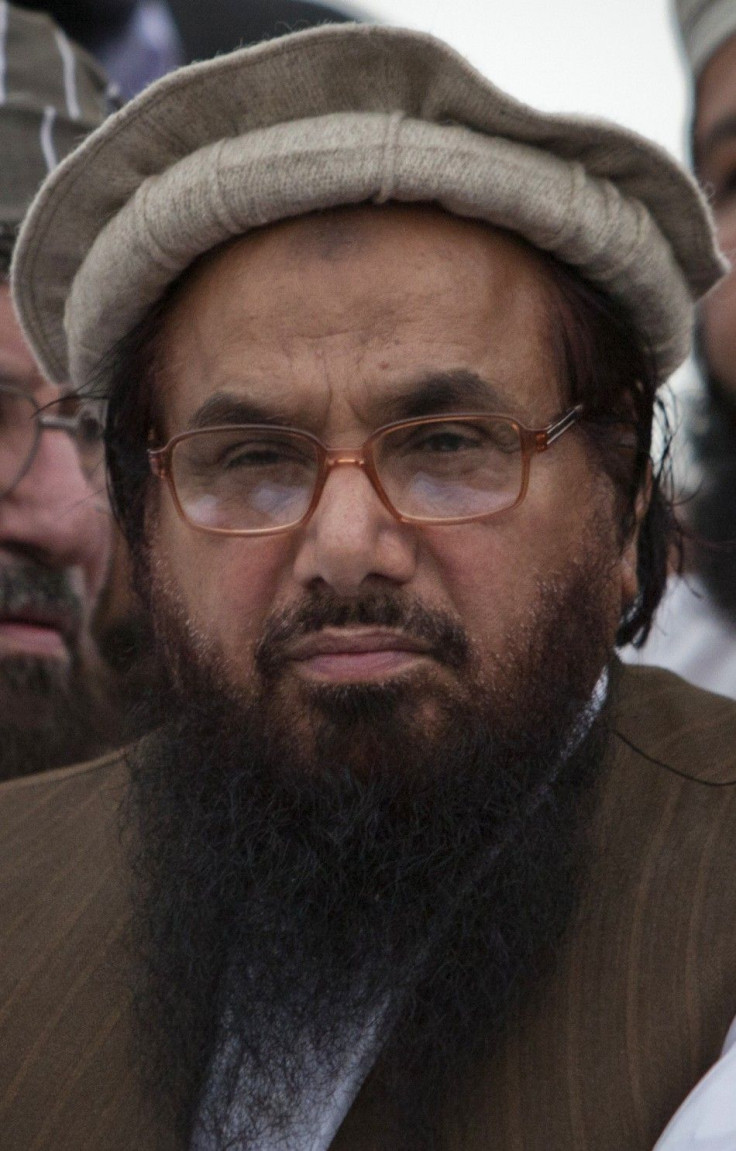Hafiz Saeed: $10 Million Bounty Pushes U.S. Further From Pakistan, Closer To India

On Monday, the U.S. State Department announced a $10 million reward for information leading to the arrest of Hafiz Safeed, a 61-year-old alleged terrorist from Pakistan.
The announcement is likely to strain the already tense relationship between Pakistan and the United States.
India supports the move. Authorities there have long suspected Saeed of having a leadership role in the 2008 Mumbai attacks, and Foreign Minister S.M. Krishna lauded the U.S. decision to pursue an arrest. In recent years, the United States and India have moved much closer than ever before in our common endeavor of fighting terrorism, he said.
India's vocal support underscores a long history of mutual antagonism between India and Pakistan. Religious differences and territorial skirmishes have divided the nations for decades, and they have never come to a solid agreement regarding the state of Kashmir, whose contested territory straddles the unstable border between the nuclear-armed neighbors.
Indian officials accuse Saeed of orchestrating the series of shootings and bombings that took place throughout Mumbai four years ago. The massacre claimed the lives of 166 people. Six of those killed were American citizens, a fact that features prominently in the U.S. announcement of a reward for Saeed's capture.
The Mumbai attacks involved 10 gunmen, nine of whom were killed. The only surviving gunman, Ajmal Kasab, has been sentenced to death in India. He told authorities that Saeed was behind the attacks.
I have always been insisting that [Saeed] was the brain behind the terror attack on Mumbai, said Krishna. And, these terrorist conspirators cannot be spared and they will have to be brought to justice. And, that is what we have been demanding from Pakistan every time that I have had an occasion to discuss our bilateral issues.
Saeed, who denies involvement in the attacks, is the leader of a Pakistani group called Jamaat-ud-Dawa, a purportedly charitable group that was labeled a terrorist organization by the United Nations in 2008. It is widely believed to be a front for a militant Islamist Salafi group called Lashkar-e-Taiba.
According to the Council on Foreign Relations, analysts say Lashkar-e-Taiba was backed and funded by Pakistan during the 1990s, when it fought India's presence in Kashmir and trained Muslim extremists there.
It was not until 2002 that Pakistan officially banned Lashkar-e-Taiba due to international pressure. But some observers in India and the United States have accused Pakistani intelligence of continuing to protect the organization.
Meanwhile Saeed, who is believed to be based in Lahore, moves freely throughout Pakistan. After the Mumbai attacks, Pakistan placed Saeed under house arrest for several months. But Pakistan eventually released him without charge, claiming insufficient evidence to detain him.
Saeed is popular with the Pakistani public, according to Al Jazeera, partly because his organization sponsored public aid after natural disasters in Pakistan and Kashmir. He also plays a leadership role in the widespread rallies against the reopening of Pakistan supply routes used by NATO to get troops and supplies into Afghanistan. Saeed claims that his role in organizing these protests is the real reason the U.S. has offered a reward for his capture.
Pakistan has denied American military presence on their soil since November, when NATO air strikes inadvertently killed 24 Pakistani troops. The incident constituted a major blow to the shaky alliance between the two countries; they had forged a partnership because the U.S. needed Pakistan's cooperation in the fight against al-Qaida, whereas Pakistan was in need of American aid.
AP reports that the supply routes in Pakistan will become even more important to the United States in 2014, when a drawdown of troops in Afghanistan necessitates easy routes of transfer.
A motion to reopen NATO supply lines is under consideration in Pakistan's parliament. Some officials are demanding that the U.S. stop carrying out drone attacks in exchange for the reopening. Others, like Saeed, oppose the move entirely.
Due to Saeed's popularity in his home country, experts predict that the new $10 million bounty will not motivate Pakistan to act against him.
© Copyright IBTimes 2024. All rights reserved.






















